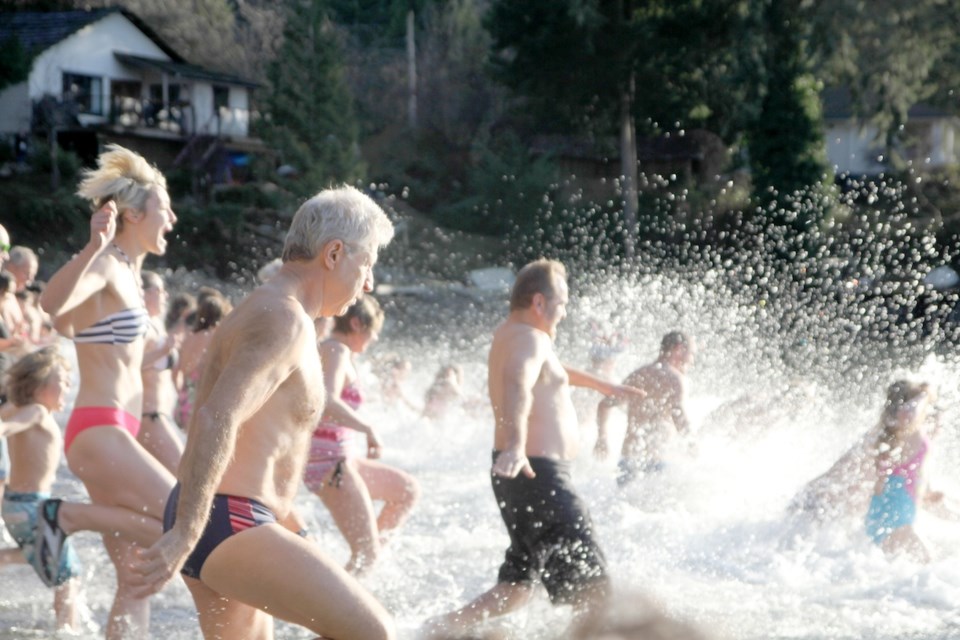For most Polar Bear Dip participants, the group dive into the Pacific is a simple dare to be taken once a year, and not repeated again until summer. For Islander Ellen Hayakawa, ocean swimming is simply a matter of spiritual sustenance that is best done as frequently as possible.
“It’s a long story about how I got into this, but it has nothing to do with a resolution or goal or anything like that,” she explains. “I love the ocean, I love the water, and if there is something that doesn’t feel good, when I come out of the water, everything is right in the world.”
Hayakawa says there is science that backs up the good feelings she gets upon exiting the water, and proven health benefits too - but she’s not much interested in delving into the research.
“It’s sort of like a meditation practice for me. Whether it’s summer or winter, the water is cold, and going in is a bit about observing your own mind,” she says. “If you know it’s cold, from an intellectual perspective, you can get over it. But again, its’ not like I am trying to meet some kind of goal. I get ready and dressed so it is easy for me to get in after my walk. And when I get there, I allow the ocean to invite me in. I don’t stay in for very long, not for a set amount of time, but when I get out I feel warmer than before.”
And when she feels a cold coming on?
“I am even more eager to get in the water when I think I might be getting sick!” Says Hayakawa. “When I was a kid, growing up in Toronto, my mother used to ask me if I was dressed warmly enough every time I left the house. So like many people, I have this ingrained fear of the cold. But this is about diminishing fear, and what I’m doing when I get in the water is sifting through my own childhood stuff, my limiting beliefs. So, while I will admit that when I started this journey I looked up how long it took for hypothermia to set in, I would not recommend that kind of research.”
She adds that there is an overwhelming stillness for her, like an embrace, when she gets in the water.
“But it’s not for everyone,” she says. “Everyone has their own thing.”



